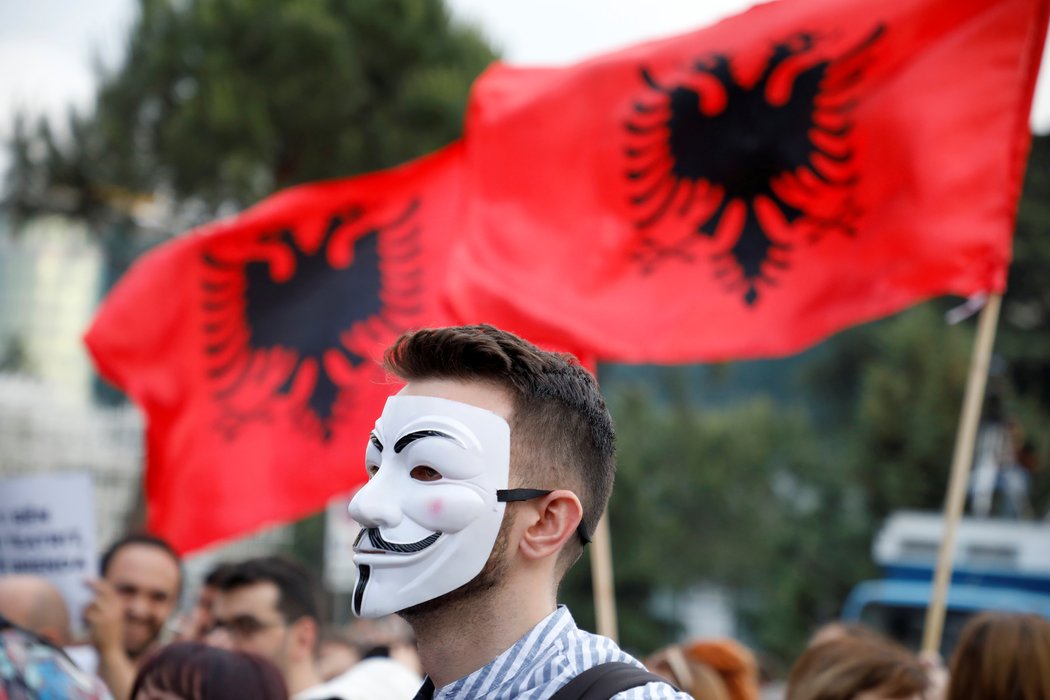
Background
Democracy in Albania has deteriorated, according to the latest report Nations in Transit 2020 by Freedom House. Albania scored lower than a year ago for democratic governance (3.25 points), media independence (3.75 points), and electoral processes (4.25 points). These results confirm the growing fear of authoritarianism being established in the country and a dysfunctional system that enables government control.
Peaceful Assembly
- The Public Transport Associations protested on 17th June 2020 in front of the Ministry of Infrastructure to demand the fulfillment of their demands due to the impact on the sector caused by the COVID-19 outbreak. Their demands include state subsidies for free transportation for passengers during the pandemic, for wages, VAT reduction, and elimination of excise duties on oil and fuel. One of the protestors stated “10,000 public transport workers risk losing their jobs permanently if the government does not act”. They warned that they will protest every day, and even go on a hunger strike until the demands are met and the support from government is received.
- On 20th June 2020, nightclub performers gathered in front of the Prime Minister's office to protest against the government's decision to close nightclubs after 8:00 p.m. as a measure to fight the COVID-19 pandemic. Nevertheless, the protest was generally against the ban on public gatherings that is in place due to the COVID-19 pandemic. As a result, police are investigating 12 people suspected of organising the protest. They are accused of “organising and participating in illegal rallies” and “obstructing the movement of vehicles”.
- During a protest against Hydroelectric Power Plants (HPPs) and in defence of natural resources, the police intervened arbitrarily, initially preventing the continuation of the protest, and later using violence and escorting civil society activists and citizens to police stations. Namely, the two protestors that were detained were standing peacefully on the sidewalk of the boulevard "Dëshmorët e Kombit" where the protest was held and are accused by the police of violating laws by being on the sidewalk. The police’s action in this case is seen as a misuse of the power given to them in that they failed to protect the people in this particular case and rather protected the interests of oligarchs.
#Albania|n locals make use of their democratic rights to protest enviornmental #destruction & loss of livelihoods caused by a huge #hydropower plant in one of the last free-flowing #rivers of Europe, the #Vjosa (pic), now face charges for doing so. Outrageous and unacceptable! https://t.co/iB6KooAdBk pic.twitter.com/wajZspGirE
— Ruben van Treeck (@rubenvantreeck) June 26, 2020
Expression
The worrying trend of diminished access to public information and limitations of media freedom during the COVID-19 outbreak has continued in this reporting period. Namely, the COVID-19 crisis has exposed the weaknesses of Albania’s public information, with many cases of monopolisation of communication about COVID-19 by the government and a lack of transparency and accountability. ERTV reported that in the first month of lockdown, the Prime Minister published 407 Facebook posts about the pandemic and press conferences were not open to journalists. This, paired with the already hostile attitude of the government towards the media, has further limited the possibility for critical journalism regarding the handling of the outbreak by the authorities.
“We live in times of a dangerous communication crisis. In my opinion, the Albanian government is one of those regimes that are using coronavirus for small and short-term interests. We have raised concerns on the monopolisation of official information and willingness to close the windows offering critical opinions,” - Lorin Kadiu, Executive Director of Citizens Channel, a watchdog media organisation.